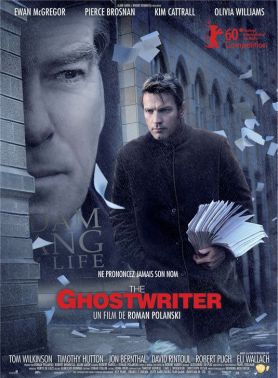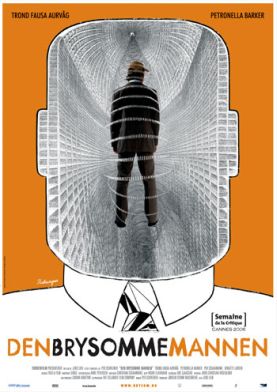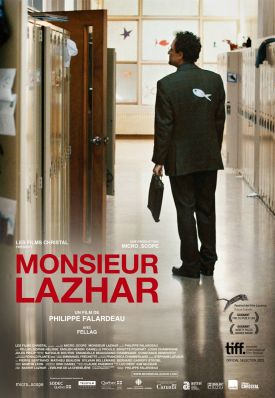Ghost Writer, The
At one point in Roman Polanski’s The Ghost Writer, his hero — who is never named but known only as “the Ghost” (Ewan McGregor) — has a chance encounter on what is supposed to be a desolate Martha’s Vineyard beach with a grizzled old man played by the great Eli Wallach, age 95. The Ghost mentions to him that he is working on the memoirs of a former British prime minister, now living locally, who is known in the movie as Adam Lang (Pierce Brosnan) but who is intended to be Tony Blair in all but name. The old man says of the Ghost’s employer that “He seems like an intelligent man. Now why did he get himself mixed up with that idiot in the White House?”
The Ghost replies: “That’s what everyone wants to know.”
It is a revealing moment. There is no danger, I take it, of anyone’s being bewildered by the change of administration into wondering exactly which idiot is being referred to here. The trope is too much a commonplace of the European as of the American left. But it is still the question that Mr Polanski’s film tries to answer — a question that only left-wing European anti-Americans could possibly want to know the answer to. And even they may find themselves less than satisfied with The Ghost Writer’s answer to it.
In fact “everyone” doesn’t want to know how Tony Blair got mixed up with George W. Bush — not even “everyone” in the same sense in which the Ghost had used the term earlier by saying that “Everyone voted for him” — that is, for Lang/Blair. “Everyone” here really means those of the British élites for whom Mr Blair was once an object of almost Obama-like veneration, the man who in 1997 led the Labour party back into power after an 18-year exile, until the “tragedy” of his involvement, together with that of President Bush’s America, in the Iraq war. For these people, Mr Bush’s involvement was emphatically not a tragedy. That’s because he was an idiot. Or an evil genius. Or both. They have never been troubled by any sense of contradiction between the two things. In other words, Mr McGregor’s “everyone” means “everyone who is likely to see this movie.” It’s not a large number of people.
The Ghost is employed to work on Adam Lang’s memoirs when the previous collaborator, a long time political associate of the ex-P.M, dies, apparently the victim of an accidental drowning. The Ghost’s arrival at the former prime minister’s compound coincides with a decision by the latter’s successor in office and former ally, Robert Rycart (Robert Pugh), to turn over to the International Criminal Court in the Hague evidence of his involvement in unspecified “war crimes.” Lang for the most part retains a tense insouciance about this, as he knows he has a safe haven among his American benefactors, including a sinister, Haliburton type company called Hatherton, on whose private jets he flies about the country, giving lectures and making money. But he is clearly rattled. His domestic situation is also a source of tension, as his wife, Ruth (Olivia Williams) is constantly hostile and bitter towards him and full of angry jealousy about what she assumes is his adulterous relationship with his secretary (Kim Cattrall). Mr Polanski chooses not to enlighten us as to whether her suspicions are true, but he hints that they are.
The Ghost soon finds what he takes to be evidence not only of Lang’s guilt in the matter of the war crimes but also that his now-dead predecessor was killed shortly after discovering Lang’s long association with the CIA. Following up the dead man’s leads, he swiftly concludes that Lang was actually a CIA agent while serving as British prime minister. “Name one decision Lang made in ten years as prime minister that wasn’t in American interests,” Rycart says, and the heads of a hundred thousand (at least) former admirers of Tony Blair nod in agreement. The case against Lang/Blair appears overwhelming, but Mr Polanski works in a twist at the end, as the Ghost finds out the real truth by a device worthy of a Hardy Boys mystery. Can he now escape his predecessor’s fate at the hands of the CIA? What would be your guess?
Mr Polanski and his co-writer, Robert Harris, on whose novel the film is based, naturally feel they can assume that the movie-going culture will share their politics, and The Ghost Writer is shot through with the fashionable left-wing anti-American and anti-Bush assumptions that are so common among the intellectual classes in Europe that they have also become common among the intellectual classes here. Under these circumstances, I suppose Mr Polanski should be congratulated for not being completely predictable in his portrayal of Lang/Blair. He also has, in my view, a crisp narrative style in telling a story on screen — even if it is a stupid and ideologically tendentious story — that carries us along with him. This makes him one of the last practitioners of what is becoming, as I have noted before almost a lost art in Hollywood, but it’s not really very much to hang onto when everything else is so predictable.
Discover more from James Bowman
Subscribe to get the latest posts to your email.







